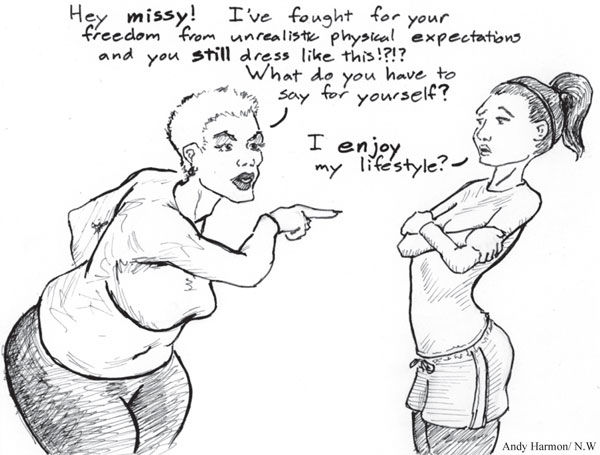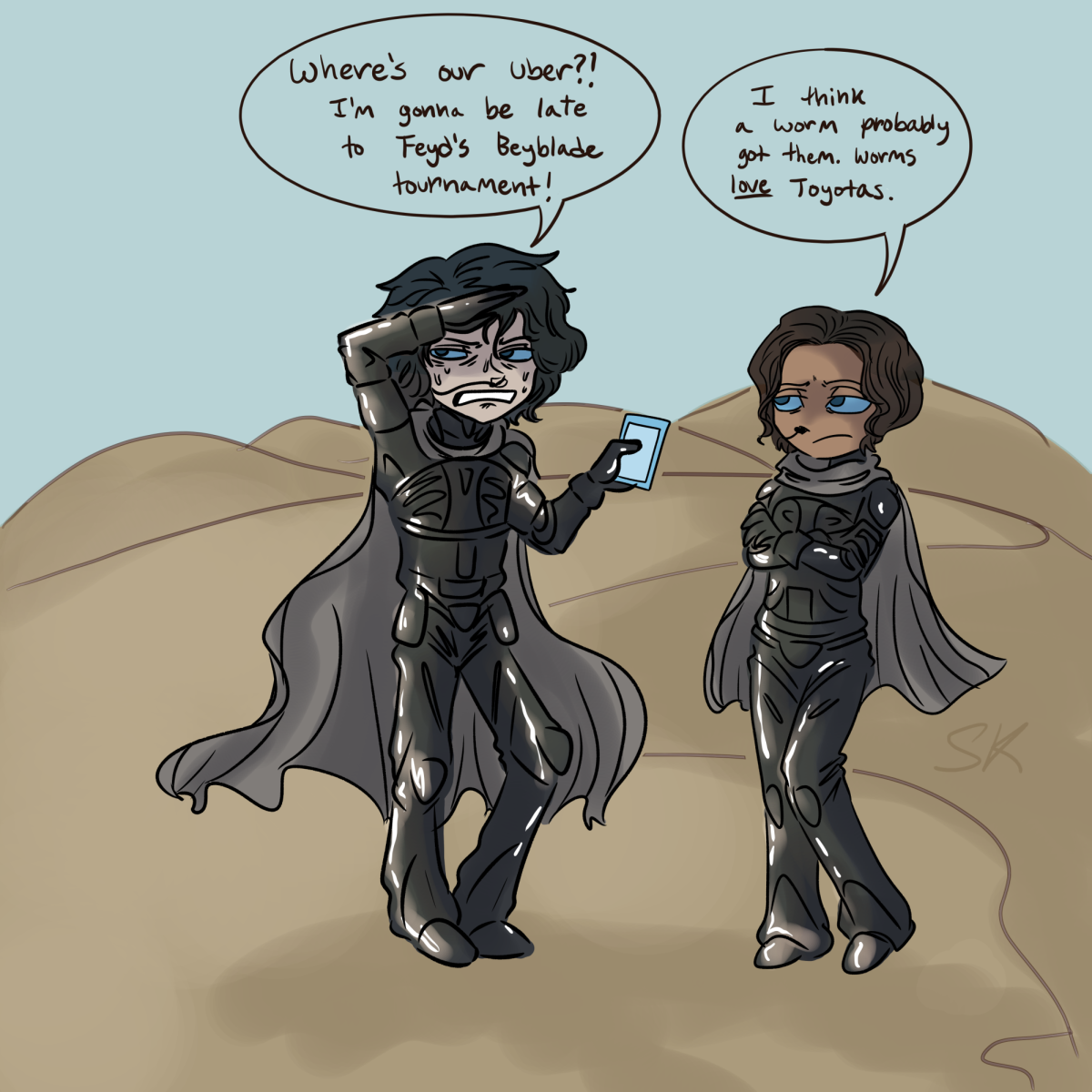I came across a feminist website while using StumbleUpon. The site discussed a poster put up in a large city in France outside of a gym. There was a picture of a mermaid and a whale with the caption: “This summer, do you want to be a mermaid or a whale?” A woman quickly responded to the poster, writing a defense of the “whales,” implying that the “mermaids” of the world were inherently unhealthy and anorexic, while she and other “whales” were “enormously cultured, educated and happy.” The incident, including both the poster and the response, was widely circulated among feminist message boards and blogs across the internet.
The argument against the original poster is that it suggests there is something wrong with being overweight, despite the fact that many women have slow metabolism or other conditions which may have contributed to their weight. After all, isn’t a favorite saying of some feminists “real woman have curves?”

Meanwhile, in the comments section of the same website that reported what had happened, I saw something else entirely unfolding. Here were skinny women arguing against the woman’s letter. They were saying they felt slighted by it, arguing that there was nothing wrong with eating right and keeping fit and that the “whales,” not the “mermaids,” were the unhealthy ones.
The two groups – the overweight and the skinny – argued back and forth for page after page. Few people seemed to see what I was seeing in the debate – that they were missing the point. Both the poster and the letter were wrong. They were both marginalizing each other, making one type of woman feel inferior while struggling to make the other type of woman seem superior. Is that the goal of feminism? When Betty Friedan sat and down and wrote “The Feminine Mystique,” was this what she had in mind?
Georg Wilhelm Friedrich Hegel, working in the early 1800s, developed a concept called the Other. The idea is that one way the sense of self is developed is through what he or she is not. The concept is often used to explain racism and sexism. Here, it comes into play because both the large and the small women are struggling to make the other side the Other. They’re forcing them into this bad societal role, depicting them in a bad way while making their group look good.
The truth is, though advertising may make many women feel like they have to live up to a certain standard, to look a certain way or fit into a certain pant size, the arguments against those advertisements make women who are skinny, either through exercise or diet or metabolism, feel like there is something wrong with them. Casting one group of women as the Other isn’t the way to go about this, because both types of women, whether large or small, are feeling like the way they look just isn’t the “right” way to look.
According to Glamour, over 40 percent of women in America are unhappy with their bodies, a percentage they say has gone unchanged since 1984. A study reported by EzineArticles.com found that the number of women dissatisfied with their own appearance is closer to 80 percent, with 88 percent admitting they felt a need to look perfect. Clearly, whatever their weight is, many women feel displeased with their own body image.
What worries me most about this whole issue is that the arguments between women of both groups, the “whales” and the “mermaids,” was not isolated to this one website. A simple google search of “mermaid or whale” will bring you to all kinds of feminists blogs and message boards where women argue with each other over this very issue. And if a man such as myself were to enter the fray, we’d be told we didn’t “get it” because we are male.
Perhaps that’s true. I don’t know what it is like to be a woman living up to the pressure of looking a certain way. But that doesn’t mean I don’t support feminism and that I don’t think about these types of issues. Making men the Other isn’t the answer, either. It’s arguable that men were the ones who started this whole issue in the first place, but that doesn’t mean we all did.
The fact is, the struggle toward equality affects every single person. It affects both skinny and large women and even men. It is wrong to marginalize a group and force them to become the Other. The sooner women stop fighting among themselves over who is the “real” woman, the sooner feminism’s initial goal – equality – can be realized. So whether you’re a mermaid or a whale or something in between, maybe it’s time we stop arguing and discover how to make this sea a better place.
























